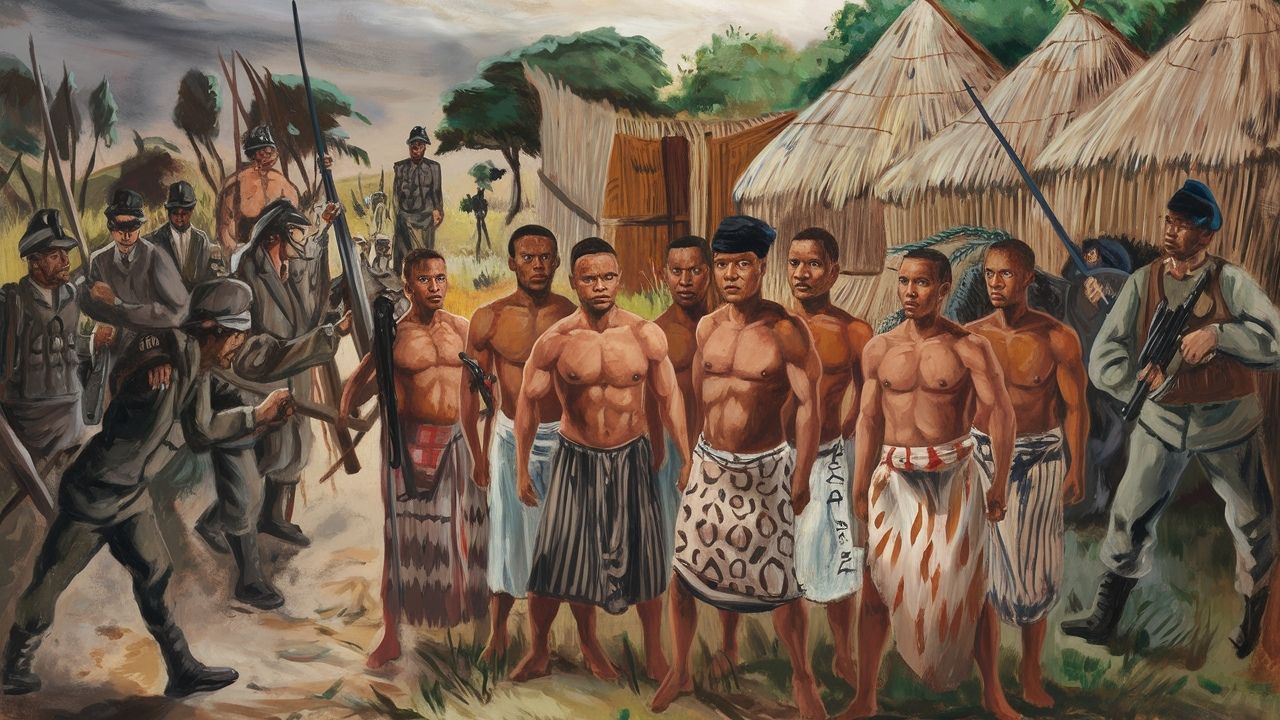
The Uukwambi Revolt was a significant event in Namibian history, showcasing the resilience and determination of the Uukwambi people. This uprising, which occurred in the early 20th century, was a direct response to oppressive colonial rule. Why did the Uukwambi people revolt? They sought to reclaim their land, culture, and autonomy from foreign powers. The revolt not only highlighted the struggles faced by indigenous communities but also underscored their unyielding spirit. Understanding the Uukwambi Revolt provides insight into the broader context of resistance movements in Africa. What were the key outcomes of this revolt? The uprising played a crucial role in shaping Namibia's path toward independence.
Key Takeaways:
- The Uukwambi Revolt was a brave uprising by the Uukwambi people against unfair colonial policies, inspiring future generations in Namibia's fight for independence.
- Led by King Iipumbu ya Tshilongo, the Uukwambi Revolt showcased the resilience of the community and left a lasting legacy as a symbol of resistance and determination.
The Uukwambi Revolt: A Brief Overview
The Uukwambi Revolt was a significant uprising in Namibia's history. It showcased the resilience and determination of the Uukwambi people against colonial rule. Here are some fascinating facts about this historical event.
- The Uukwambi Revolt took place in 1932 in northern Namibia.
- It was primarily a response to oppressive colonial policies imposed by South African authorities.
- The revolt was led by King Iipumbu ya Tshilongo, a prominent figure in Uukwambi history.
- The Uukwambi people were part of the larger Ovambo ethnic group.
- The revolt was sparked by the imposition of taxes and forced labor on the Uukwambi people.
Key Figures in the Uukwambi Revolt
Several individuals played crucial roles in the Uukwambi Revolt. Their leadership and bravery were instrumental in the uprising.
- King Iipumbu ya Tshilongo was the main leader of the revolt.
- Chief Martin Ndilimani was another significant figure who supported the uprising.
- Many local warriors and villagers joined the revolt, showing solidarity against colonial rule.
- Women also played a vital role, providing support and resources to the fighters.
- The revolt saw the involvement of traditional healers who boosted the morale of the fighters.
Causes of the Uukwambi Revolt
Understanding the causes of the Uukwambi Revolt helps to grasp the depth of the grievances that led to the uprising.
- The imposition of heavy taxes on the Uukwambi people was a major cause.
- Forced labor policies required locals to work on colonial projects without fair compensation.
- The confiscation of cattle, a vital resource for the Uukwambi, fueled resentment.
- The restriction of traditional practices and customs by colonial authorities angered the community.
- The overall disrespect and mistreatment by colonial officials were significant triggers.
The Course of the Uukwambi Revolt
The revolt unfolded in a series of events that highlighted the determination of the Uukwambi people.
- The revolt began with attacks on colonial outposts and officials.
- Uukwambi fighters used guerrilla tactics to combat the better-armed colonial forces.
- Several battles took place, with varying degrees of success for the Uukwambi.
- The revolt lasted for several months, showcasing the resilience of the fighters.
- Despite their efforts, the Uukwambi were eventually overpowered by the colonial forces.
Aftermath and Legacy of the Uukwambi Revolt
The impact of the Uukwambi Revolt was felt long after the fighting ended. It left a lasting legacy on the community and Namibia's history.
- King Iipumbu ya Tshilongo was captured and exiled by the colonial authorities.
- The revolt led to increased awareness and resistance against colonial rule in Namibia.
- The bravery of the Uukwambi fighters inspired future generations in their struggle for independence.
- The revolt is commemorated in Namibia as a symbol of resistance and resilience.
- The Uukwambi Revolt remains a significant chapter in the history of Namibia's fight for freedom.
The Legacy of the Uukwambi Revolt
The Uukwambi Revolt stands as a powerful reminder of the resilience and determination of the Uukwambi people. Their fight against colonial oppression in the early 20th century highlights the broader struggle for independence across Africa. This revolt wasn't just a local skirmish; it was part of a larger movement that eventually led to Namibia's independence in 1990. The bravery and sacrifices of the Uukwambi people continue to inspire future generations. Understanding these historical events helps us appreciate the complexities of colonial history and the enduring spirit of those who fought for freedom. The Uukwambi Revolt is more than a chapter in history books; it's a testament to the power of unity and resistance. Let's honor their legacy by remembering their story and the lessons it teaches about courage and perseverance.
Frequently Asked Questions
Was this page helpful?
Our commitment to delivering trustworthy and engaging content is at the heart of what we do. Each fact on our site is contributed by real users like you, bringing a wealth of diverse insights and information. To ensure the highest standards of accuracy and reliability, our dedicated editors meticulously review each submission. This process guarantees that the facts we share are not only fascinating but also credible. Trust in our commitment to quality and authenticity as you explore and learn with us.
